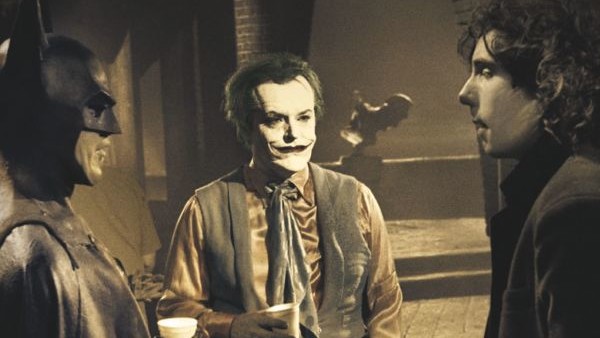How Happy Meals Killed Tim Burton's Batman
1. The Backlash

For Warner Bros, that problem was Tim Burton's vision and the director had to go. Their relationship with McDonald's changed the trajectory of Batman movies and while McDonald’s spokeswoman Rebecca Caruso played down the objectives of the campaign, it was clear the comapny was aggrieved:
“The objective of the [Happy Meal] program was to allow young people to experience the fun of Batman the character. It was not designed to promote attendance at the movie. It was certainly not our intent to confuse parents or disappoint children.”
There was something of a feeling that Burton's film had duped people who didn't realise it would be so dark and you have to suspect that - despite McDonald's claims - a lot of that was down to it being marketed aggressively as a family friendly movie.
Batman Returns screenwriter Daniel Waters recalled in the 2005 documentary Shadow of the Bat – Part 4: Dark Side of the Knight) audience reactions and it certainly sounds like that fits:
"It’s great. The lights are coming up after Batman Returns, and it’s like kids crying, people acting like they’ve been punched in the stomach, and like they’ve been mugged. Part of me relished that reaction, and part of me to this day is like, ‘Oops.’”
McDonald's were so affected by the whole situation that when it came to tying in with Jurassic Park - 1993's biggest merchandising opportunity - they changed tact. As well as apparently asking Steven Spielberg to tone down the violence of Michael Crichton's original novel (and adding in "good dinosaurs") - no doubt via the studio - as a provision of them having a relationship at all, they marketed their tie-in lines more selectively.
The McDonald's Jurassic Park promotion was aimed at teen-agers and adults, instead of pitching to young children because of the backlash the Happy Meal/Batman Returns relationship had inspired. They still transformed their restaurants - this time into "official visitor centers" - but their assault on DinoMania was very much not one plastered with a message of family friendliness.
Warner Bros, meanwhile, took the opportunity to suggest that Burton might want to do something smaller (which he took as pressure to step down, despite his interest in making Batman Forever) and changed their approach to the tone of Batman movies. The backlash made them re-evaluate how they should be aiming at their key demographics - not just the ones watching the movies, but also the ones buying licensing rights, which was just as lucrative, if done right.
Burton moved on, but McDonald's stuck around, though the tone of their Batman Forever tie-in promotion was noticeably different and there was no attempt to make Batman Forever seem so family friendly, ironically (given that it was).
The outrage they - and fans duped by their idiotic marketing campaign - kicked off, made Batman Forever a far more easy movie to tie products into, which is why there was such a phenomenally large tie-in toy line released for it compared to the comparative lack of Batman Returns toys. Warner Bros got there in the end.
In short, it's easy to dismiss Joel Schumacher's Batman tenure as a disaster, but the one key thing to remember is that kids loved Batman Forever in 1995 and they loved the toy tie-ins. The toy manufacturers loved Schumacher and Warner Bros for it and Warner Bros loved the licensing money. And in the end, that's why Batman movie history went the way it did.
Still, it's pretty ironic that a clown helped to kill Batman.